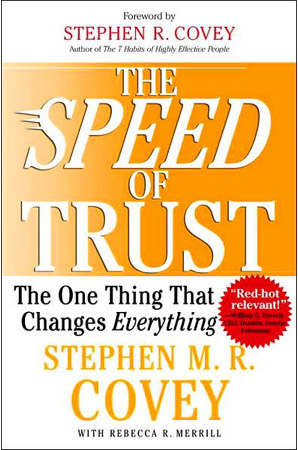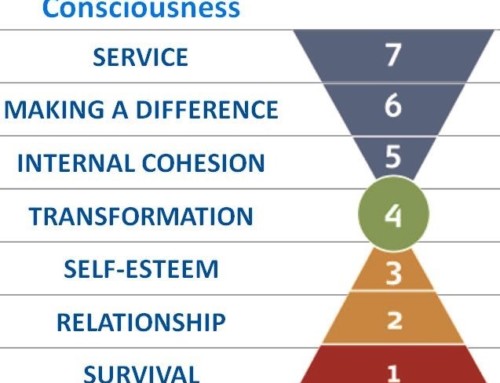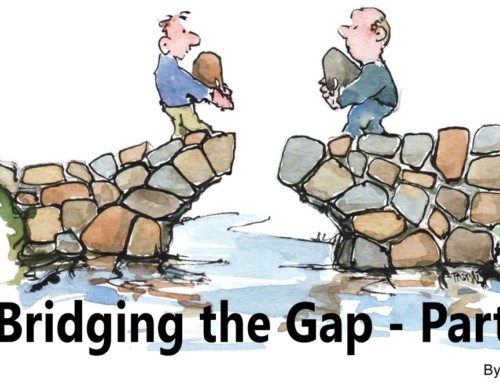Stephen M.R. Covey’s book, The Speed of Trust, is a must read for leaders. Let’s face it, trust is at the heart of all solid relationships and the workplace is a series of relationships.
The book breaks trust down to its essence. 
We often think of of trust stemming from one’s character only, but Covey reminds us that competence is a key issue in trust as well. I may have outstanding character, but if someone does not trust that I have the knowledge, skills or abilities to perform, my character alone will not ensure total trust.
Covey also writes about the 5 Waves of Trust metaphorically derived from the “ripple effect” that suggests trust flows from the inside out. The first wave is Self-trust. In essence, we have to believe in our own character and ability to perform before others will trust us. Psychologist, Albert Bandura, labeled the conviction about ones own ability to amass the motivation, resources and courses of action to complete a task as self-efficacy. Positive psychology researchers find this to be one of the greatest determinants of success. We now know that self-efficacy correlates highly with job performance, job attitudes and motivation. Henry Ford was right when he said:“Whether you think you can or you can’t, you’re right.”
Transformational Leaders have healthy self-efficacy. They consistently live their values and they have a well developed sense of their own strengths. These characteristics put Transformational Leaders on the right track to trust and be trusted.
For leaders whose honest evaluation leaves them unsure of their own self-efficacy, it can be developed! Leadership Beyond Limits offers leadership development programming centered on Bandura’s steps to building self-efficacy.
We will be reviewing Covey’s Trust Waves 2 through 5 in later blogs.






Leave A Comment
You must be logged in to post a comment.